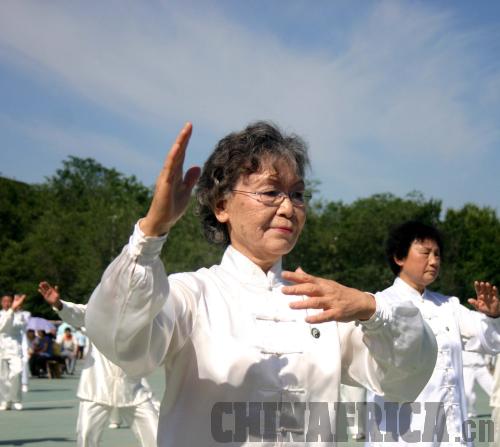|
 |
|
(HE JUN) |
Huang Sanbi, 65, once an accountant in a university in Beijing, has been retired for nearly 10 years. Her day is full and well scheduled. Doing morning exercises, studying ways of maintaining her health and having fun with the family have become her daily "obligatory courses." She is one of the lucky ones, leading a happy life in her old age, not worrying about things like pension and medical insurance. However, many senior citizens in rural areas or with medium and low income are not well prepared for their retirement. Problems caused by an aging population pose a big challenge to China's future development, despite its recent economic progress.
Aging society
According to recently released data from the sixth national population Census conducted in 2010, the population in the age group of 60 and over accounted for 13.26 percent of the total population, up by 2.93 percentage points from the population census in 2000. On the other hand, those under the age of 14 make up less than 17 percent of the population, down from 23 percent a decade ago.
"The census showed that the issue of population aging is becoming serious," Jiang Xiangqun, Deputy Director of the Institute of Gerontology with the School of Sociology and Population Studies of Renmin University of China, told ChinAfrica.
According to the international demography standard, when the proportion of people aged 60 and over exceeds 10 percent of the total population, or that of people aged 65 and over exceeds 7 percent of the total population, the country can be called an aging society. Judged by this, China is definitely an aging society. What makes it special is that China's population gets aging at the stage of medium level of economic development with GDP per capita just exceeding $4,000 in 2010.
"The process of population aging is rapid in China. And China's situation can be called growing old before getting rich," Jiang said, explaining that generally aging societies are found in developed countries with a per-capita GDP of about $10,000.
Labor affected
The issue, he said, will leave a growing number of retirees dependent on a dwindling number of working-age people in the near future. "The burden of caring for large numbers of senior citizens will pose a great challenge to China's social safety net, especially when it is not entrenched," Jiang said.
Facing this, the government should properly deal with the relations between economic development and population aging, according to Jiang, proposing establishing a multi-level social pension insurance system and encouraging the development of commercial insurance and enterprise annuity. "As for senior citizens in the current society, the government should shoulder the responsibility of providing finance and service to support them," he added.
The country's advantage in the manufacturing sector will also be weakened. "China's economic miracle in the past few years has benefited greatly from its demographic dividend, which is a large number of young people to provide factories with fresh recruits," Li Wei, a professor of economics at the Beijing-based Cheung Kong Graduate School of Business, said in an interview with The Globe and Mail. "As time goes by, the number of young recruits available for factories will shrink, causing the salaries for factory workers to rise rapidly."
The growing labor costs will undermine China's manufacturing sector, threatening its position as the world's source of low-price goods, and further slow down the country's export momentum, he added.
However, "if the mode of economic development is successfully transformed, that is to say the development of the economy is driven by technology-intensive industries instead of labor-intensive ones, the situation of growing old before getting rich can be relieved," said Zhang Min, an advisor with China Population Association, in an interview with Xinhua News Agency. He also said that as long as the transformation goes smoothly, there is unlikely to be labor shortage resulting from population aging at least in the next 30 to 50 years. |